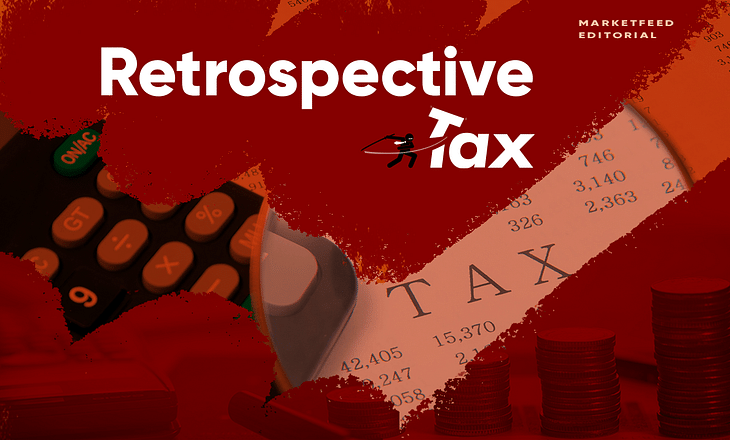Retrospective Tax Abolished: What Does It Mean For Companies?

The Union Government has abolished the much-despised ‘Retrospective Taxation Law’ that was introduced in 2012. This move could change India’s reputation as an investment hub in foreign markets. So what exactly is retrospective taxation? Why was it introduced? Why was it abolished and what does it mean for the country? Read on to know more.
What Is Retrospective Tax?
Retrospective taxation allows a country to pass a rule on taxing certain products, items, services, and deals, and charges companies from a time behind the date on which the law is passed. Many countries use the law to correct any irregularity in their taxation policies that allowed companies to take advantage of such loopholes in the past. In simple terms, the government can tax companies for transactions made in the past.
Let us take a simple example. Raj is a student who has recently moved to Banglore. For the first three months, he pays a rent of Rs 5,000 as agreed with the landlord. After three months, the landlord increases the rent to Rs 6,000. Raj agrees to pay, but the landlord says that the rent for the first three months should also be Rs 6,000. Therefore, Raj will have to pay Rs 1,000 extra per month for the first three months he has stayed. This is exactly the kind of power the government has with the retrospective taxation law.
The History
The law was introduced in 2012 when the government was fighting Vodafone in the courts. Vodafone acquired Hutch (Hutchison Essar Telecom services) in 2007. In 2011, the government raised a tax demand of Rs 7,990 crore as capital gains tax. The government believed that the company had made capital gains and it should have retained the tax amount during the transaction itself.
The company declined to pay since it believed that the transaction did not fall under India’s tax jurisdiction. This was because Vodafone UK, through its subsidiary in the Netherlands, had acquired Hutchison which was based in Hongkong. Moreover, the entire transaction took place in the Cayman Islands.
Subsequently, the company and the government took the case to the High Court, which ruled in favor of the government. Subsequently, Vodafone appealed to the Supreme Court and won the case. Late Pranab Mukherjee, who was the Finance Minister at that time, decided to have Retrospective Taxation in India. This allowed the government to tax companies based on previous transactions. So, if a new tax law came today, the government could apply it and tax companies based on past transactions.
Another such dispute was with UK-based Cairn Energy. The company took a similar case against the Indian Government to the Arbitral Tribunal in Hague (Netherlands) and won a ruling in its favor. The Permanent Court of Arbitration at the Hague ruled that the Indian government should pay damages worth $1.2 billion to Cairn Energy since it had wrongfully applied a retrospective tax demand.
What Next?
The Retrospective Tax aimed to increase government revenue by ensuring that companies do not doge tax. All this, but at what cost? The law was unfair for corporations since taxing previously dated transactions was against the spirit of justice. As in the case of Cairn Energy (UK), the Permanent Court of Arbitration ruled that “the Indian government’s retrospective demand was in breach of the guarantee of fair and equitable treatment”. Retrospective Taxation earned India severe disrepute in the international forum. A country in a dire need of foreign investments has to ensure that its taxation policies are welcoming for multinational companies.
The Indian government has signed a bilateral treaty with both the UK and the Netherlands. This ensures that both countries allow businesses to function seamlessly in each other's jurisdiction without unfair treatment. India seems to have failed to uphold its obligations under both treaties.
On the retrospective taxation law, Prime Minister Narendra Modi said that 'the decision taken by India to get rid of retrospective taxation shows our commitment, shows consistency in policies and gives a clear message to all the investors that India is not only opening the doors of new possibilities but the decisive Government of India, has the will to fulfill its promises'.
Here’s a question for you. Do you think that the Indian government’s taxation policy is hostile to international investment? You can let us know in the comment section of the marketfeed app.


Post your comment
No comments to display